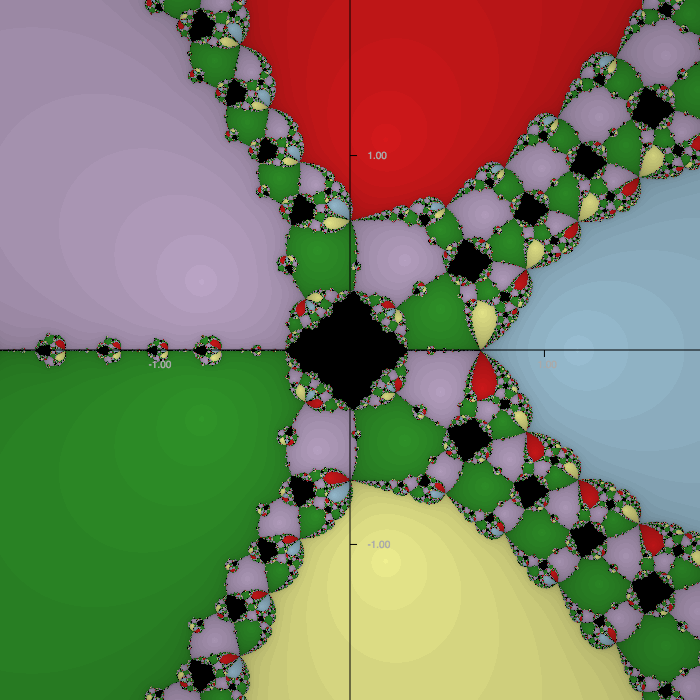For a polynomial $P$ of degree $n$ with real coefficients and with $n$ distinct real roots, the Newton's method $z_{n+1} = z_n - {P(z_n) \over P'(z_n)}$ converges for almost all initial values $z_0$ in $\mathbb R$ (or almost all $z_0$ in $\bf C$ with respect to the area measure) to a root of $P$. This is a result due to M. Lyubich (~ 1984).
I think I remember that for a polynomial with complex coefficients, almost all initial values $z_0$ has an orbit that converges to a periodic orbit in ${\mathbb C} \cup \{\infty\}$, but there are examples where that orbit is not a root of $P$.
Unfortunately, I can't remember who is the author of that result and I would like to find a reference.
EDIT: the result is actually false. There are polynomials whose Newton's method has a periodic Siegel disk, see e.g. this answer. In that case, there is an open set of points whose orbit's $\omega$-limit set is a circle.

